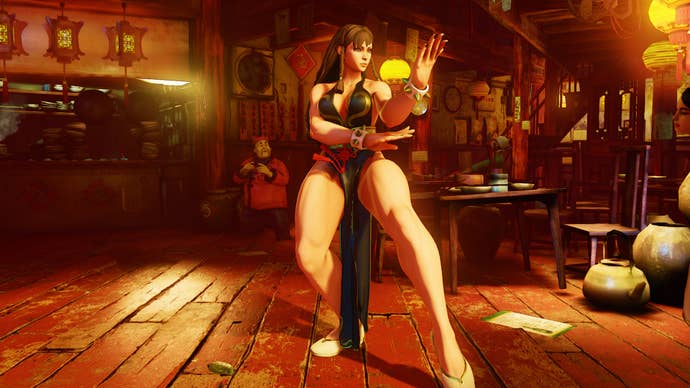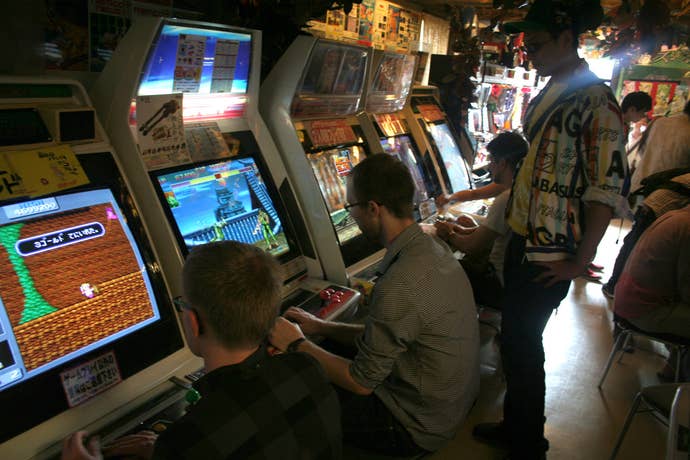With Street Fighter 5’s arcade version ‘sunsetting’, even arcade games aren’t safe from ‘always online’ BS
SF5 Type Arcade’s online servers are being shut off, and the game will disappear from Japanese arcades. Nowhere is safe from the always-online nonsense.
Capcom and Taito have announced that Street Fighter 5: Type Arcade’s servers will shut down on April 1. That doesn’t seem like too big a deal, right? No more balance patches, over the air updates, or online play… that’s workable. SF5 is finished, after all. But, no – this is worse than that: all arcade versions of Street Fighter 5 will stop working, even offline, on that date.
It’s fascinating to see this happen in arcades, as arcade gaming feels a world away from the nightmarish always-online debate. But here we are. Even Street Fighter 5’s arcade version is heavily online-connected - and once that connectivity is shut off, the game will essentially cease to exist. There will be no final Type Arcade patch to leave the game playable in perpetuity. Fans of SF5 are invited, instead, to play the console version.
But where does this really leave us? I’d call this the thin end of the wedge, but it feels like that actually happened a little while ago. What happens when Capcom decides it no longer wants to maintain the console and PC servers for SF5? In 15 years, will any version of SF5 be playable? The answer shouldn’t be anything but an emphatic yes, but now, it feels like there’s no guarantees. It’s the slipperiest of slopes.
I’m heartbroken by this news as a certified arcade defender, too. And as a Street Fighter and fighting game fan. There’s something special about these games in the arcade. They are different, unique, in that environment. Games that have aged and perhaps lost some of their relevance in the home market live on gorgeously in these settings.

Right now, today, you can walk into any one of Japan’s (admittedly dwindling) arcades, and even some in the West, and play Street Fighter 2, 3, and 4. If you’re lucky, you might even stumble on one of the Alpha games, or even a super-rare version of the first Street Fighter with those god-awful pressure-sensitive punch and kick buttons. From April, you will no longer be able to do that with Street Fighter 5.
It used to be the case that as an arcade operator could buy a machine - or more likely, a game board - and it’d serve them for years, so long as they kept on top of maintenance. Classics like older fighting games or light gun games populate many arcades to this day, still proudly serving twenty or even thirty years later.
When their life in the public eye was finally over, many of these machines would then find their way into the hands of private collectors - lovingly maintained and given a new life, the ‘retro arcade’ scene is full of nerds who treat these antiques like classic cars. I myself have a couple of machines – so I relate. Even at home, these SF5 ‘Taito Type X’ game board setups will deactivate.

For Street Fighter 5: Type Arcade, all that is over now. Having launched quite a while after the home version of the game, its lifespan will ultimately have been just a few days over five years. I now wonder if Tekken 8, which is also launching its arcade version ‘late’, will suffer the same fate in a few years. And who knows what the future holds for Street Fighter 6.
It’s not entirely wasteful, obviously. Arcade machines are vaguely modular. The orange-tinted ‘Vewlix’ cabinets that were designed to be home to SF5 can be repurposed for new games. Many will, I imagine, be converted to SF6.
More of them will probably enter the private collector’s market. Within that market, people with hacked Taito Type X machines will inevitably find a way to play SF5 Type Arcade offline – but the point is, people shouldn’t need to be hacking games to keep playing them a mere five years after their release. In arcades, as home release, or whatever else.
And furthermore, no arcade with a formal relationship with Taito or Capcom will run hacked games - so SF5 will disappear from formal arcades - places still happily featuring the odd nostalgia-baiting SF2, 3, and 4 machine, after just a five-year lifespan.
This is a reminder, anyway. It reminds how these digital libraries we are all creating are ultimately transient and can indeed disappear in the blink of an eye. It sucks; and I don’t really know how we get to a future where this doesn’t happen.








